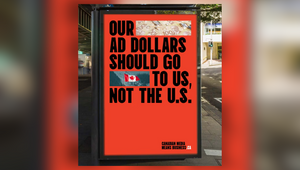
Will Vegan Brands Survive in the Face of Soaring Prices?

If your news flow and social media feeds were previously overwhelmed with other worldwide disasters, lately they are probably all concerned with one thing - how to afford a normal standard of living. With prices skyrocketing all over Europe, the cost of living crisis has affected every sector of the economy on the continent and beyond. Already exhausted from the pandemic, economies of both lower and higher GDP countries in Europe were hit by the speeding train of war on the continent and soaring prices, leaving independent businesses (but not only) in rubble.
The roaring ‘20s seem to not be roaring so loud anymore, as people quietly retreat home. And although now allowed to see each other face to face, they prefer not to, so they can save up for a rough winter. But will a winter be so rough with temperatures jumping even higher than prices in late October, with 20°C in London right now?
Indie companies and entrepreneurs all over Europe are worried about the state of their businesses now and for the coming months, but one sector cuts through the context of all current crises of the world - the vegan food sector. A macro trend that’s part of the battles against increasing obesity, high cholesterol and the progressive killing of our planet, veganism had gained incredible speed in the last ten years. Many of us are trying to reduce our meat intake and being persuaded by no-meat alternatives. It remains true, though, that for a lot of European countries, especially in their rural parts, veganism is very much a disposable lifestyle and still extremely inaccessible. Despite these challenges, going vegan or reducing your animal protein consumption significantly lessens one’s carbon footprint - something that just a few months ago many more people were interested in doing, but will that remain so with growing fear of an uncertain future where heating up your home is a privilege?
As shopping for non-essentials and partying might be among a handful of things that consumers might decide to give up for the sake of their pocket, how will that really affect the plant-based industry? An industry that miraculously thrived on a continent where most culinary cultures are so tightly intertwined with the consumption of animal products and is the home of some of the most well-known and loved cheeses, milks and meats of the world. But also an industry that tied itself with the ‘good fight’ of the world and made people who participated in it feel like they’re doing the right thing - will that remain a priority, or will it fall back until things stabilise? Will the current crisis on the continent be the major trip in the step of veganism reaching Eastern and Southern Europe, where it is still to gain full speed?
Karola Kentner-Schzütz, head of marketing for the DACH region at LIVEKINDLY Collective, working mostly with LikeMeat, believes that the crisis is definitely reflected in all fast-moving consumer goods (FMCG) segments and shoppers are “buying more conscious, focus on planned shopping and do[ing] anything to avoid extra costs regarding especially lifestyle and premium products.” However, according to a LIVEKINDLY survey, sustainability still remains an important pillar of life for consumers, with meat and cheese replacers still in dynamic growth with +7.7%. According to NIELSEN for 2022, plant-based meat total market is still “growing double digit with +13%” and looking at another survey by BMEL, German consumers are staying conscious about their diet, with 44% of participants calling themselves ‘flexitarian’, especially those between the ages of 14 and 29. But how can vegan brands keep those numbers up in the countries that are already receptive, while also growing them in those that are not?
According to Karola, everything stems from communicating plant-based living and eating as a key solution for the future, not an impediment of the present.
Mark Kulsdom, global brand lead and founder of The Dutch Weed Burger, based in the Netherlands, believes that the trends should stay quite stable, as they have been in Germany, for those already committed to the vegan lifestyle. “That crowd will keep engaging with us out of a sense of habit,” Mark explains. “Once incorporated into their daily and weekly food choices, I think we won’t lose those customers. The expansion with new users, whether they are first tryers, or flexitarians stepping up their game is another thing.”
Mark reminds us that inflation is expected to, and already is, hitting the meat sector big time, double or triple as hard. “Production chains have become very expensive. Chicken and cow feed for example. WIth the war in Ukraine already putting a big strain on the Dutch chicken farmers (over 70% of feed for Dutch animal consumption used to come from over there), we see a rise in energy use, transport and further processing of an already inefficient production chain. We will see an increase in the price of animal based products and that increase might push people who are already on the verge of converting towards plant based over the age.”
He says that in the Netherlands, some price parity between meat and non-meat products is already taking place. “If you also consider special discount actions in retail shops, price wise, plant-based is becoming more and more appealing as we go. Plant-based is in its essence the most efficient food chain. Plant-based burgers, for example, come in all different price ranges. Admittedly the cheaper they get, the less quality they have, but I think plant-based products have a firm position in the mental landscape of many people. It might take a small push to tip people over the edge of plant based products and inflation might be it,” continues Mark.
That growth opportunity is also seen by Henrik Åkerman, global brand lead at Oumph!, one of the LIVEKINDLY Collective brands. “Price changes are not only affecting the price of plant-based foods, but also animal based protein, so we definitely see the key to success there. The message remains the same as before - making plant-based products so good that it is no longer a compromise to choose them instead of animal products.”
At Oumph!, Henrik explains that they don’t tend to look at plant-based food as a trend in a vacuum, but rather a macro trend “built up on several big category drivers, such as sustainability, health, and animal ethics.” However, those drivers remain firmly linked to their core category. This is why Oumph! wants to come with a proposition focusing on taste and food appeal. “That is how we believe we not only will drive more people to the category, but also keep them eating plant-based through the crisis,” says Henrik.
Those micro trends that Henrik mentions are also the reason vegan food thrived in Europe in the first place. Speaking as a founder of a brand that was born and raised in the Netherlands, Mark explains that for most western countries, the urban population remains pretty advanced in their shopping habits in opposition to rural populations. “I think vegan brands in Europe, with a couple of major players like The Vegetarian Butcher, Vivera and us playing ahead of the troops, have their roots in strong founders and entrepreneurs that knew it was going to be a long breath, but nonetheless a crucial one for the wellbeing of the planet.” To him, strong brands in the segment are built by people’s belief in the respect the products deserve, and the belief that ethical living, animal lives and reducing carbon footprints should stay at the forefront of people’s minds. Not only this, but the rise of the early players in the vegan world went hand in hand with more information in mainstream media about climate disruption - something that should not change. “Almost all of the global problems we face have their origin to a certain extent in the animal intensive industry. The industrialisation of growing animals, even though super popular, is on its way out. They are on their way out because of simple economics. It's immoral, inefficient and with the ethical standards raised by the new generations, you can easily compare it to the mining industry.”
According to Mark, the best way to keep veganism as a macro trend going on the basis of those already established moral pillars in Europe, is by brilliant communication, especially now during the time of crisis. With resources becoming more scarce and costly, when met with good communication from the brands, people are bound to understand the superiority of plant-based living not just as an alternative, but as the better and positive one. Neville Tam, brand lead at The No Meat Company explains that the successful brands in the market have been the ones going beyond generic plant-based category drivers, and showing true purpose and brand positioning that is relatable to the already set in motion new age values.
“Offering products that answer local meal occasions, snacking habits and tastes is also important. For example, a British sausage eaten with mash and gravy requires a different plant-based product to a German Wurst,” says Neville. “Especially now, during the cost of living crisis, it is paramount to educate on the issues with the right tone, never shaming or alienating those on their plant-based journey. At the No Meat Company we believe in making it easy to make those little swaps from meat to plant-based without compromising on taste, and that we should feel good about every little choice we do make and what we are contributing to health, sustainability and against animal cruelty.”
Julia Granung, head of products and R&D at Peas of Heaven, also avoids sugar coating and faces the fact that indie brands will be heavily affected by the crisis, but sees an opportunity for innovation, especially when it comes to streamlining the process. “It has in a way, forced us to become better at what we do. We can’t expect the consumer to pay for the current financial situation globally. On the flip-side, we always focus on taste and texture and that’s what we communicate too. If we hunker down to weather the storm now, there will be nothing left when it has passed.”
She continues, “We’ve lost partners and suppliers which has been hard, but at the same time we’ve ventured into new partnerships. In a way you can view situations like these as a hard reset or an eye opener. We’ve had to look over pretty much everything in regards to our product. One might say it has actually made it better!”
When looking at the vegan sector we are looking at a field that rose with persistence and on the solid base of science, technology and wide-spread information campaigns. Without communication, veganism wouldn’t have gotten as far as it has today on the continent and this is exactly what seems to be its rescue boat today. Mark believes that now those that will remain in the game are those that know how to communicate the “good side of history” better than others, and stick to people’s hearts and minds. He continues, “It is either eating plant-based tasty products, with great mouthfeel and flavour, or we’ll be eating dry beans in ten years from now, if change remains obsolete. So communicate in a real and truthful way and people will stick to your brand. Having said all this, make your products count. So imitating something is one thing, but does it actually feed you? Does it contain nutrients that your body wants? Stay relevant!”
And although it seems to be on the brands to connect the dots for the consumers, those dots are all over the planet - from the temperatures last summer, to extreme weather conditions all throughout the year - and climate change is far from denyable. “The communication needs to hammer in that plant-based is not only the next best thing, but is our last shot at turning the tide,” says Mark. “This task ahead is big and sometimes feels impossible, but it’s the last chance we will ever get. Are we really going to eat ourselves into this age of extinction? Or are we going to smarten up just before the last opportunity evaporates?”















